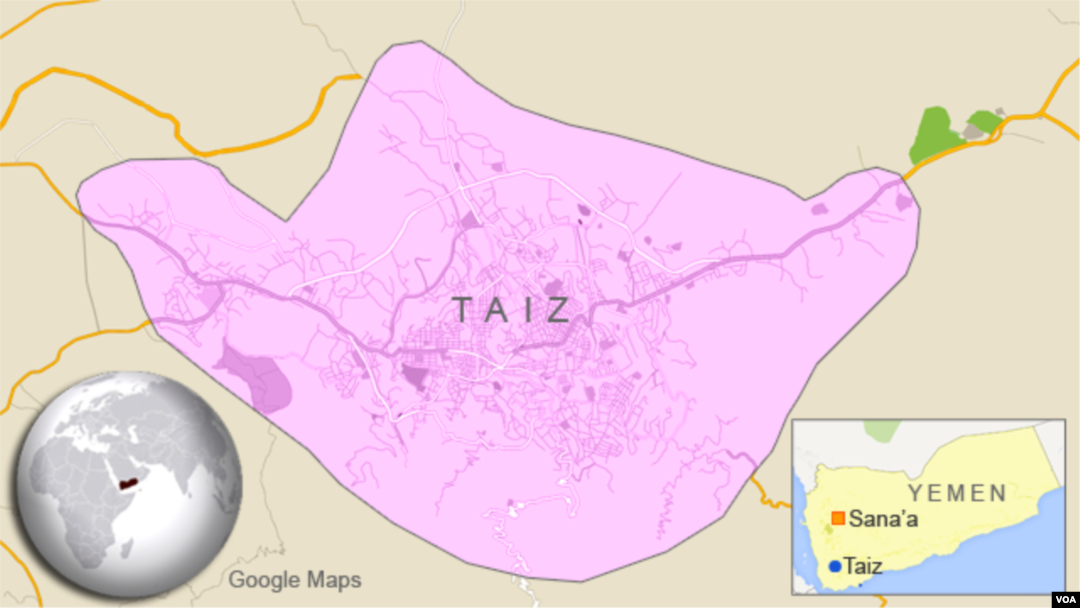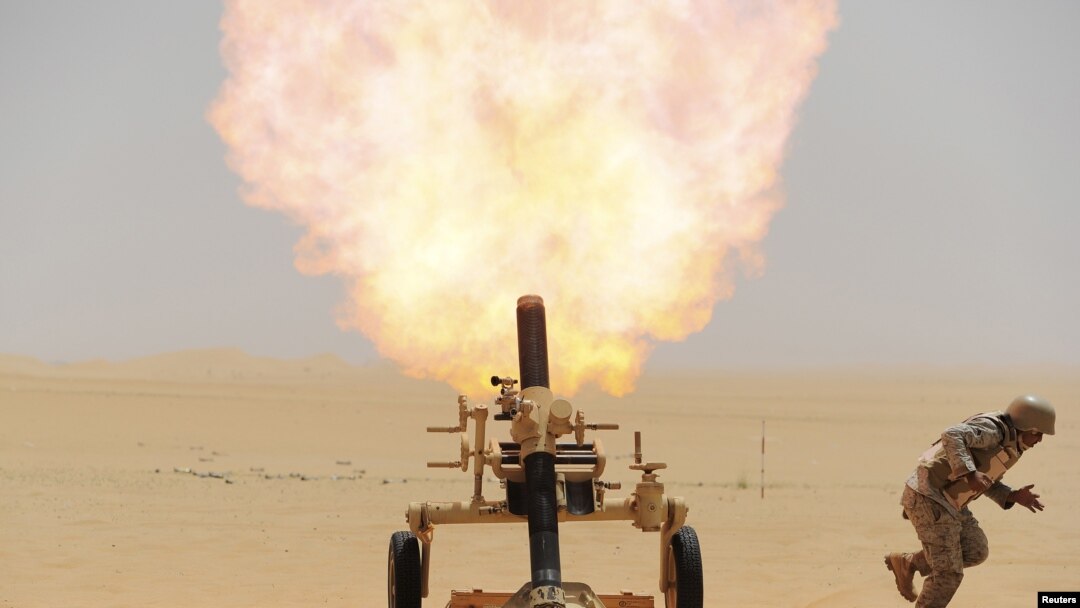Yemeni security officials say the Saudi-led coalition has launched fresh airstrikes on Shi'ite rebels in two cities, a day after the kingdom declared an end to its monthlong air campaign targeting the Iran-backed rebels and their allies.
The instability in Yemen requires much more work there and in the entire Middle East region, the White House said Wednesday.

Taiz, Yemen
"Obviously, the job is not done," Jen Psaki, White House communications director, said on CNN. " ... There's a lot of work that needs to be done and we're going to be doubling down and continuing to work on that with our partners around the world.''
Yemeni officials said coalition forces on Wednesday struck at Houthi rebels in Taiz, Yemen's third-largest city. The rebels had seized control of a military brigade headquarters near the old airport to the city's southeast.
Airstrikes also hit the southern port city of Aden, blasting rebel forces in outlying districts there.
Street fighting continued in both cities, especially Taiz, where combat with rebels left dozens killed on both sides.
The Houthis on Wednesday called for a return to U.N.-sponsored peace talks to resolve the conflict. In New York, U.N. spokesman Stephane Dujarric said the United Nations stood ready to play any role to facilitate the peace negotiations.
Last week, U.N. Secretary-General Ban Ki-moon said the U.N.-supported diplomatic process "remains the best way out of a drawn-out war with terrifying implications for regional stability."
Saudi Arabia's leading role against the Houthis has turned Yemen into the latest theater of a regional proxy conflict between the Gulf's leading Sunni Muslim and Shi'ite Muslim powers — a struggle also playing out in Syria, Lebanon and Iraq.
According to the World Health Organization, 1,080 people have been killed and 4,352 wounded over the past month in Yemen.
Earlier Wednesday morning, U.S. National Security Council spokeswoman Bernadette Meehan had encouraged using the declared pause in air raids to discuss a diplomatic resolution to the upheaval.
"We strongly urge all Yemeni parties, in particular the Houthis and their supporters, to take this opportunity to return to these negotiations as part of the political dialogue," Meehan said in a statement that also praised Saudi Arabia's $274 million commitment of humanitarian relief for Yemen.
Psaki reiterated that goal in her CNN interview. "There is no other solution that's going to work,'' she said. "This is not a war that can be fought on the battlefield.''
Meehan's statement also said the U.S. would "continue to closely monitor terrorist threats posed by al-Qaida in the Arabian Peninsula and to take action as necessary to disrupt continuing, imminent threats to the United States and our citizens."
Saudi Arabia on Tuesday had declared the end of its monthlong bombing campaign aimed at halting the Houthis' advance, but said its new focus on supporting a political solution also could include actions to prevent the rebels from acquiring or using weapons from Yemen's military.
A Saudi statement also prioritized resuming U.N.-led peace talks concerning Yemen.
Hadi speech
In Saudi Arabia on Tuesday, Yemen's exiled president, Abd-Rabbu Mansour Hadi, gave a televised address saying the crisis in his country would end "soon." He also thanked the Saudi-led coalition and said his government would restore hope to Yemen's people.
"I express the deepest gratitude and respect to our Arab and Muslim brothers and friends in this exceptional alliance in my name and on behalf of the Yemeni people," Hadi said.
An image from Dubai-based Al-Arabiya satellite television shows Yemen's exiled President Abd-Rabbu Mansour Hadi in a televised speech from the Saudi capital, Riyadh, April 21, 2015.
"The alliance ... supported [the government's] legitimacy, which responded to the calls of Yemenis to serve its interests," Hadi said, adding the people "are looking to live and restore their state."
That's "the primary objective of Operation Decisive Storm," he said of the Saudi-led strikes.
Iran
Iran, which supports the Houthis, had welcomed the declared halt to airstrikes as the end to "killing innocent and defenseless civilians" and called the move a "step forward" toward a political resolution.
President Barack Obama on Tuesday said the U.S. government had told Iran that any weapons shipments to the Houthis would be a "problem."
"We're not sending obscure messages, we send them very direct messages about it," Obama said in an interview on MSNBC's "Hardball" with Chris Matthews. "My hope is generally that we can settle down the situation in Yemen."
The aircraft carrier USS Theodore Roosevelt sailed toward the Gulf of Aden off the Yemeni coast Tuesday to join other U.S. warships to ensure vital Gulf shipping lanes remain open.
VOA's Luis Ramirez contributed to this report from the White House. The Associated Press and Reuters provided some additional material.
Strikes on Yemen Continue


